In a world where education meets innovation, custom edtech software is the secret sauce that can transform learning experiences from drab to fab. Imagine a classroom where every student feels engaged, every lesson is tailored to their needs, and teachers have the tools to make magic happen. Sounds like a dream, right? Well, it’s time to wake up and smell the digital coffee!
Table of Contents
ToggleOverview of Custom Edtech Software
Custom edtech software serves as a tailored solution for educational institutions, addressing unique teaching and learning needs. Software development focused on education allows schools and universities to optimize their processes and enhance student engagement. Institutions can deploy platforms that support blended learning, facilitating both in-person and online experiences.
Using custom software enables educators to create personalized learning paths for their students. Teachers can track academic progress and adapt materials to suit diverse learning styles. Integration with existing systems ensures a smooth transition for institutions, reducing downtime and disruption.
A variety of features makes custom edtech solutions appealing. Real-time analytics provide insights into student performance, enabling timely interventions. Communication tools foster collaboration between students and teachers, reinforcing learning outside traditional classrooms.
Financially, investing in custom software offers long-term savings. Off-the-shelf solutions often require expensive licensing fees and may lack specific functionalities. In contrast, customized applications deliver precise functionalities tailored to institutional needs, offering scalability for future growth.
Moreover, defining clear objectives for custom software development determines its overall success. Institutions should consider user feedback during the design process to meet expectations effectively. Engaging stakeholders throughout ensures the software aligns with educational goals and enhances learning experiences.
Ultimately, custom edtech software revolutionizes traditional education, creating dynamic environments where teaching and learning can thrive.
Benefits of Custom Edtech Software


Custom edtech software offers significant advantages that can transform the educational landscape. By addressing specific requirements, this technology empowers institutions to optimize their digital learning environment.
Tailored Solutions for Unique Needs
Custom edtech software delivers personalized features designed to meet distinct educational challenges. Each institution benefits from solutions that adapt to its curriculum and teaching methods. For example, platforms can evolve to accommodate varying educational standards and diverse student populations. Instructors can implement unique assessments and integrate preferred teaching tools seamlessly. Flexibility remains at the core of custom solutions, enabling schools to modify functionality based on real-time feedback. Aligning software capabilities closely with institutional goals enhances learning outcomes and ensures relevant content delivery.
Enhanced User Experience
Improving user experience is crucial for engaging students and educators alike. Custom edtech software prioritizes intuitive interfaces that facilitate navigation and reduce learning curves. Functionality tailored to specific user needs fosters a more productive environment. Real-time analytics provide immediate insights, allowing teachers to monitor progress and adapt strategies effectively. Engaging communication tools promote collaboration among students and educators, nurturing a sense of community. Access to personalized learning paths maximizes student potential, keeping learners motivated and involved. Overall, custom solutions significantly enhance the overall experience for all users in educational settings.
Key Features to Consider
Custom edtech software should include essential features to enhance its effectiveness in educational settings. Two critical considerations are scalability and integration capabilities.
Scalability and Flexibility
Scalability allows institutions to adjust resources based on their evolving needs. It ensures software can accommodate growth, whether in student enrollment or additional programs. Flexibility supports diverse teaching methodologies and learning environments. Custom solutions can adapt to various curriculum requirements, facilitating unique assessments and instructional strategies. For instance, a software platform might incorporate new subjects or modules as needed. Institutions maximize their investment when they choose software that grows with them.
Integration Capabilities
Integration capabilities enable custom edtech software to interact seamlessly with existing systems. Schools often utilize multiple platforms for administration, grade tracking, and communication. Custom solutions ought to connect effectively with these systems, reducing administrative burdens. For example, learning management systems should sync with student information systems to streamline data management. Enhanced integration improves overall user experience and fosters collaboration among educators and administrators. Custom software that integrates well can lead to greater efficiency and more meaningful insights into student performance.
Challenges in Development
Developing custom edtech software presents several challenges that require careful planning and consideration.
Budget Considerations
Budget constraints significantly impact the development process. Allocating funds appropriately for both initial setup and ongoing maintenance becomes essential. Many educational institutions often underestimate costs associated with custom solutions, including hiring skilled developers and necessary updates. Specific features such as advanced analytics tools or integration capabilities can further strain budgets. Institutions need to identify all costs upfront to avoid unexpected financial burdens. Strategizing resource allocation can help maintain project viability while meeting educational goals.
Technological Hurdles
Technological hurdles can arise during the development of custom edtech software. Compatibility issues with existing infrastructures often present significant challenges. Various educational institutions use diverse systems that require careful integration strategies. Keeping up with rapidly evolving technologies also poses a challenge, as outdated systems may hinder functionality and user experience. User requirements must adapt as educational methodologies evolve, complicating the development process. Ensuring sufficient training for staff on new technologies also plays a crucial role in successful implementation.
Custom edtech software is reshaping the educational landscape by offering tailored solutions that meet the diverse needs of students and educators. Its ability to enhance engagement and streamline processes makes it an invaluable asset for institutions seeking to innovate.
By focusing on scalability and integration, custom software not only adapts to evolving educational standards but also fosters collaboration among educators. This adaptability ensures that learning experiences are personalized and effective.
As schools navigate the complexities of modern education, investing in custom edtech software proves to be a strategic choice that can lead to long-term benefits. Embracing this technology empowers institutions to create dynamic learning environments that maximize student potential.




